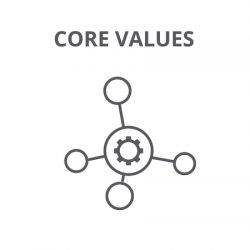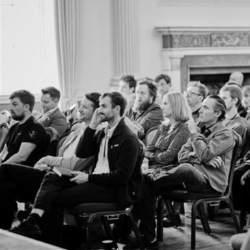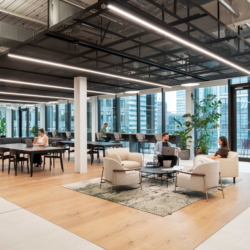February 27, 2018
Fifth of employees think the stated core values and vision of their company do not reflect reality

Over a quarter (27 percent) of employees in the UK feel their organisation’s vision or values have too much corporate jargon and almost one in five (18 percent) say they don’t reflect what the company is actually like, claims a new survey. Research by Rungway found that more than half (52 percent) of employees can’t recite their organisation’s vision, and nearly half (49 percent) can’t recite their organisation’s values. Two in five (39 percent) also said they wish they had more involvement in contributing to their company’s vision and values. Among demographics, men (45 percent) are more likely than women (32 percent) to want to be involved in contributing to the company’s vision or values than women, and those aged 25 to 34-years-old are the most likely to be able to recite their company’s vision and values (both 64 percent). That said, they are also the most likely (31 percent) among age groups to say the vision and values have too much corporate jargon.









 Less than a quarter (23 percent) of employees feel completely informed about the values of the organisation they work for and just 19 percent of employees feel completely informed about their employer’s corporate mission claims a new survey by Reward Gateway. These statistics are even more problematic when you consider that 83 percent of employers say it’s critical to the success of their business that employees understand their mission. Recognition is one of the key drivers needed to ingrain employees with a company’s values and corporate mission, however, 40 percent of employees don’t agree that their employer recognises them when they demonstrate the values their company cares about. Furthermore, the study has found a break-down of communication and trust between employees and their employers. 81 percent of senior decision makers say that their organisation is transparent with employees about how they plan to achieve the company mission. However, only 22 percent of employees say they strongly agree that they trust their employer to communicate information openly and honestly.
Less than a quarter (23 percent) of employees feel completely informed about the values of the organisation they work for and just 19 percent of employees feel completely informed about their employer’s corporate mission claims a new survey by Reward Gateway. These statistics are even more problematic when you consider that 83 percent of employers say it’s critical to the success of their business that employees understand their mission. Recognition is one of the key drivers needed to ingrain employees with a company’s values and corporate mission, however, 40 percent of employees don’t agree that their employer recognises them when they demonstrate the values their company cares about. Furthermore, the study has found a break-down of communication and trust between employees and their employers. 81 percent of senior decision makers say that their organisation is transparent with employees about how they plan to achieve the company mission. However, only 22 percent of employees say they strongly agree that they trust their employer to communicate information openly and honestly.

























October 29, 2019
Workplace values matter more than career progression to young dads
by Han Son Lee • Comment, Flexible working, Wellbeing